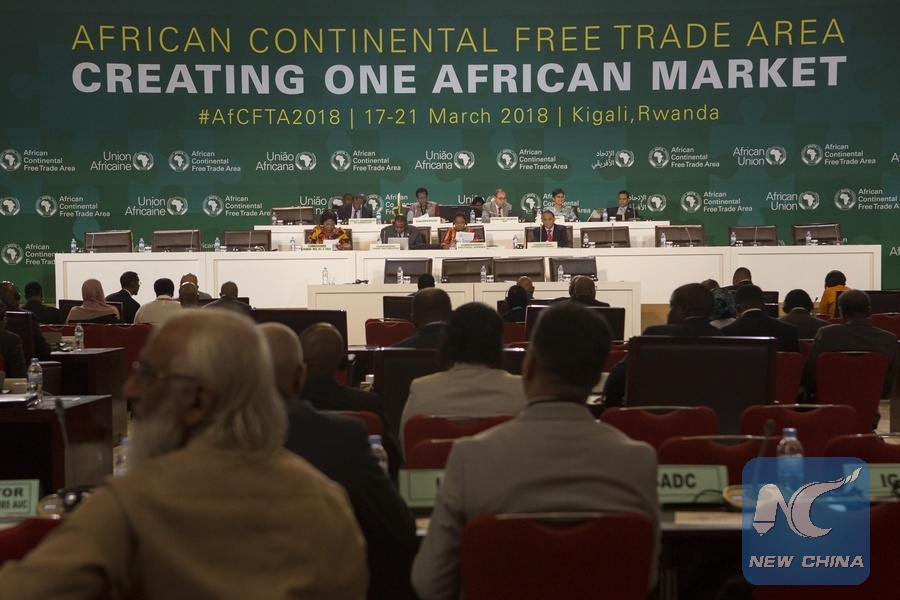
Participants attend a meeting of the Permanent Representatives Committee (PRC) of the African Union (AU) in Kigali, capital of Rwanda, March 17, 2018. African leaders are expected to sign an agreement that will launch the African Continental Free Trade Area (AfCFTA) at an extraordinary summit of the African Union (AU) kicked off here on Saturday. The summit started Saturday with a meeting of the Permanent Representatives Committee (PRC) of the AU, a preparatory meeting of the heads of state and government summit. (Xinhua/Gabriel Dusabe)
KIGALI, March 19 (Xinhua) -- The African Continental Free Trade Area (AfCFTA) will help Africa to weather international changes in the developed world and multilateral trading system, a UN official said on Monday in Rwanda's capital city Kigali.
There is a rising tide of protectionism and anti-globalization in the developed world, which could affect Africa, said Vera Songwe, Under-Secretary-General of UN and Executive Secretary of the UN Economic Commission for Africa.
U.S. unilaterally announced increases in steel and aluminum tariffs, while currently Africa exports to the U.S. around 800 million U.S. dollars in the affected steel and aluminum products, said Songwe, at the 18th Executive Council Meeting of the African Union (AU) Extraordinary Summit on the AfCFTA.
The U.S. has also threatened to revoke preferences of the African Growth and Opportunity Act (AGOA) if the countries of the East African Community (EAC) do not reverse an industrialization plan to reduce imported second-hand clothing, she said.
AGOA is a U.S. trade act that enhances market access to the U.S. for qualifying sub-Saharan African countries.
EAC leaders in 2016 announced a plan of banning the importation of the used garments by 2019 in a move aimed at encouraging local production and development within member countries.
She also said faith is currently "ebbing" in the multilateral trading system, as the Doha round of World Trade Organization (WTO) negotiations appears more dead than ever.
The Doha Round is the latest round of trade negotiations among the WTO membership. Its aim is to achieve major reform of the international trading system through the introduction of lower trade barriers and revised trade rules.
With the British decision to leave the European Union, confidence in regional integration processes has also suffered a blow, said the official.
According to her, the AfCFTA marks a fundamental consolidation and rationalization of African regional policy that lets Africa position itself better.
African countries can wield the strength of the African continent better than they can individually, she added.
As the global trading systems seems "so uncertain", it is a common sense for Africa to look at the opportunities closer.
The AfCFTA could help Africa to boost intra-African trade, thus, industrialize and create the needed jobs for the youth, she said. It would also benefit the service sector and women of Africa, who account for two-thirds of informal cross-border traders in Africa, according to the official.

